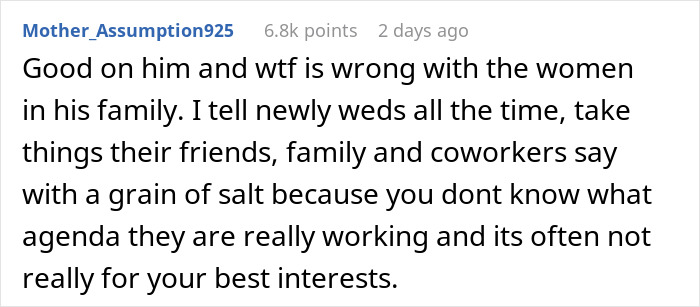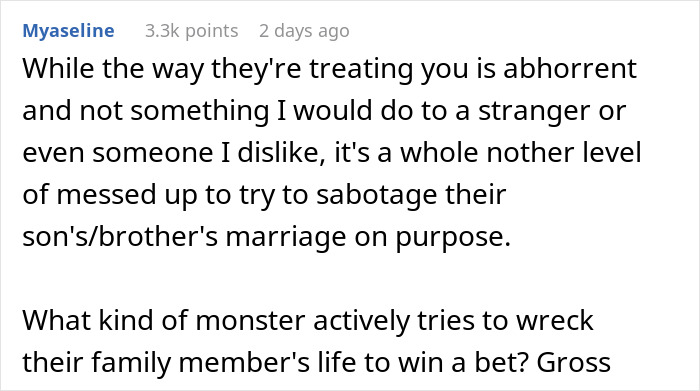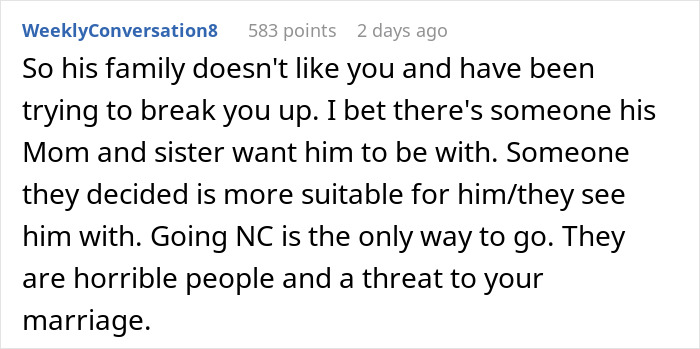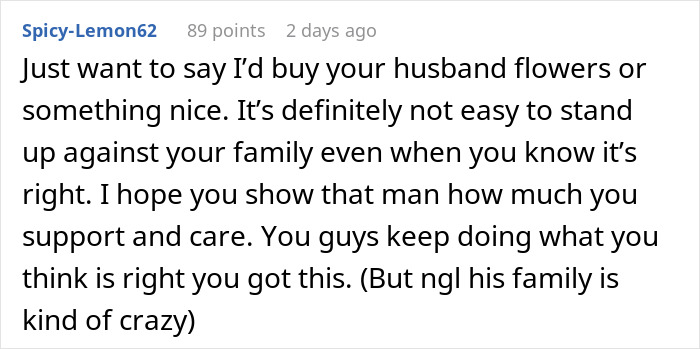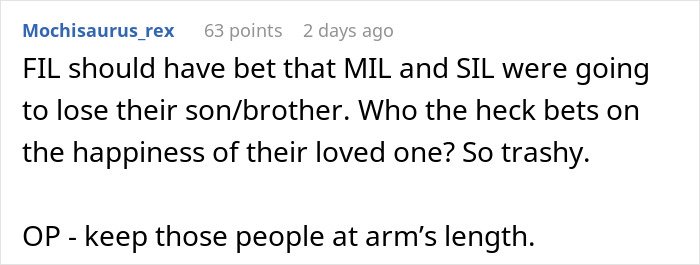Bad relationships with in-laws are nothing new. Three out of four married couples say they have significant disagreements with their in-laws. But this MIL, SIL, and FIL could take home the award for “The Worst In-Laws Of All Time.”
It all started with them addressing their DIL as their son’s “best friend.” For a long time, the couple didn’t know why they would do that. Until one fateful conversation the husband had with his father. Apparently, their family took bets about how long the marriage would last.
Hurt beyond compare and trying to make sense of this, the wife went online to look for some advice on what to do next.
A newly married couple faced a strange problem: the husband’s family kept referring to the bride as his “best friend”
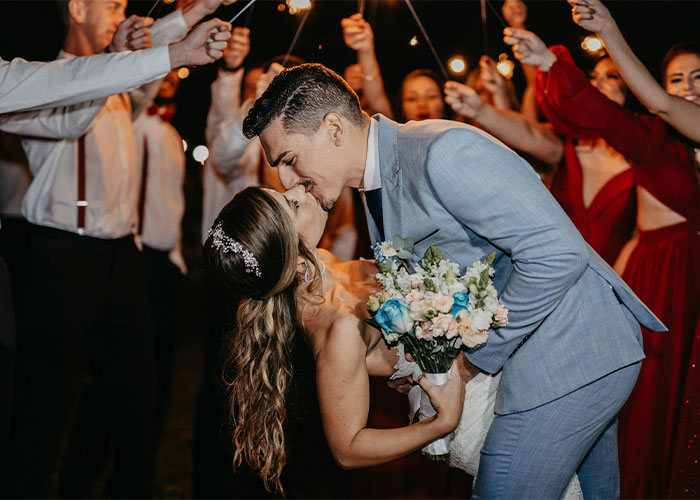
Image credits: Jonathan Nenemann (not the actual photo)
The wife detailed several occasions when that happened and couldn’t find a reasonable explanation

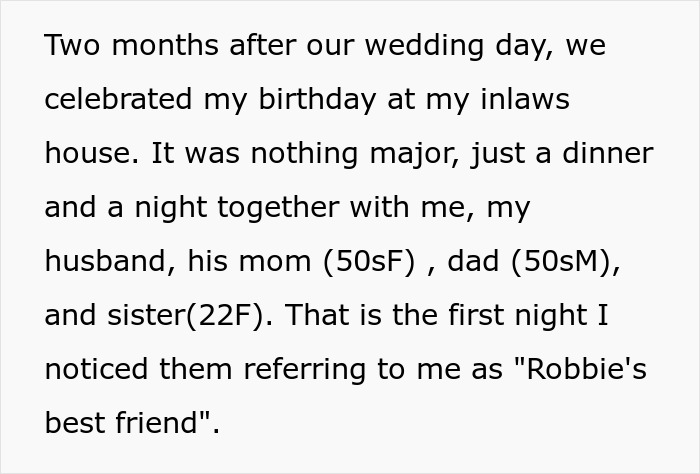

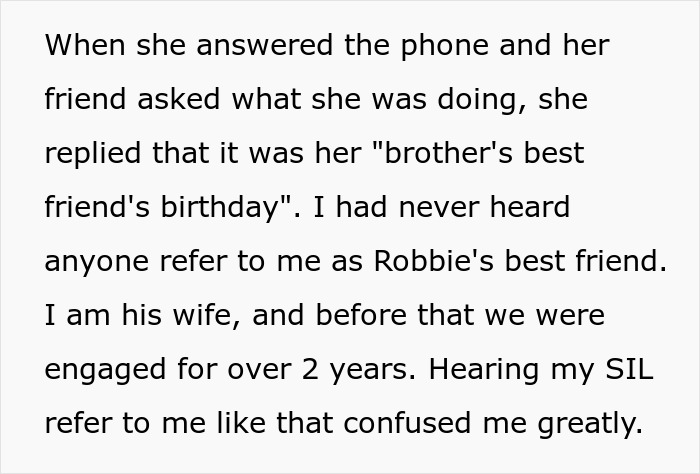

Image credits: cottonbro studio (not the actual photo)
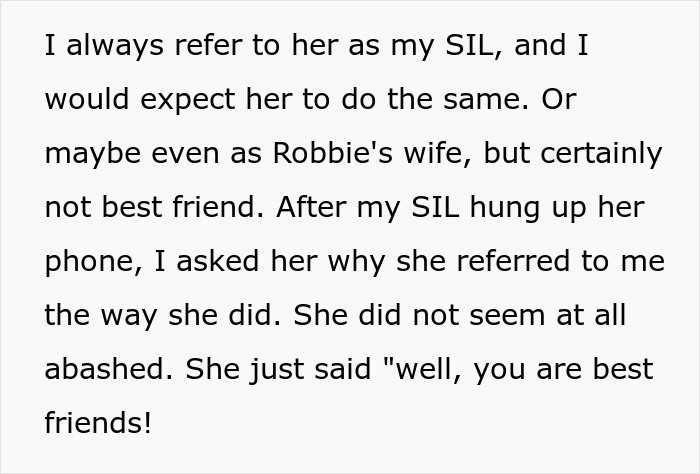

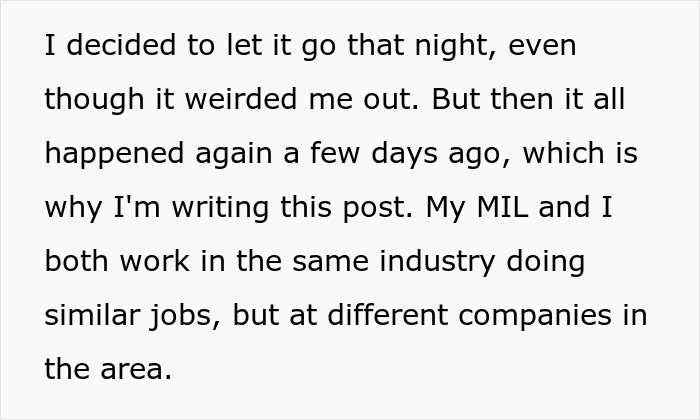
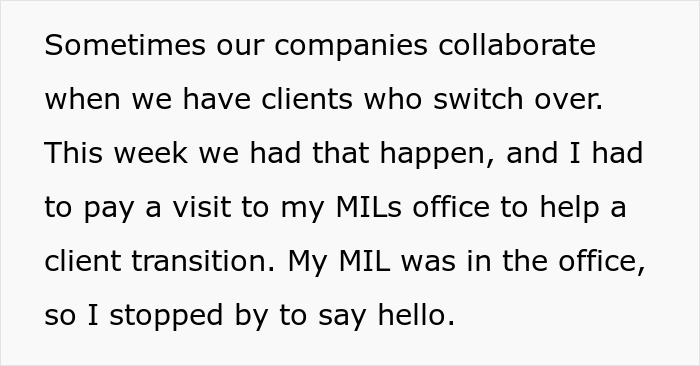

Image credits: RDNE Stock project (not the actual photo)
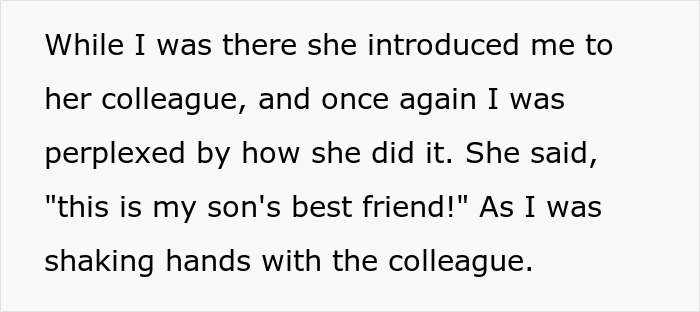

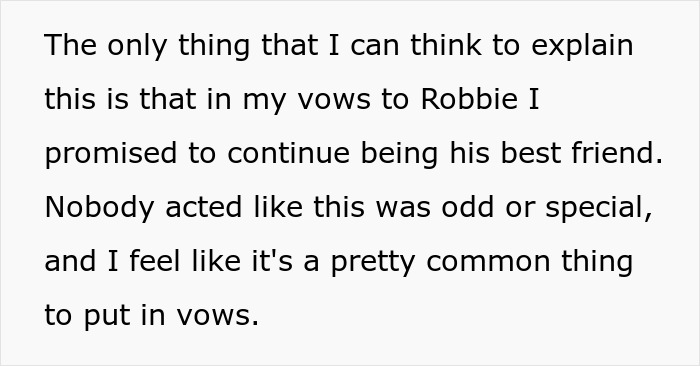


Image credits: Mental Health America (MHA) (not the actual photo)
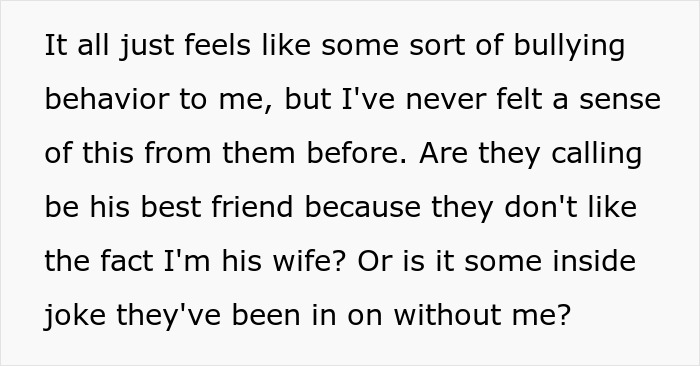
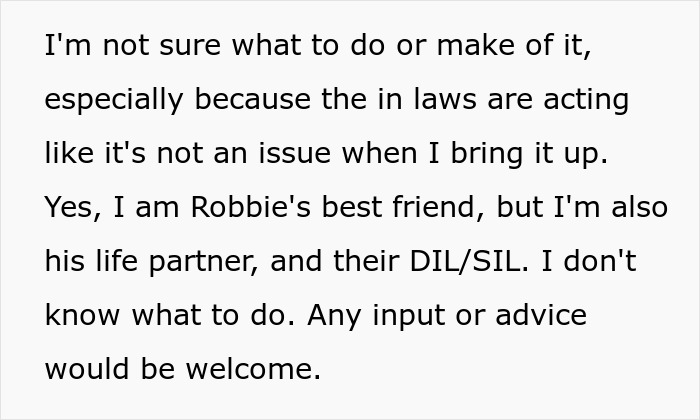
Image credits: faxxed
People pointed out that this is not normal; they’re being passive aggressive and disrespectful
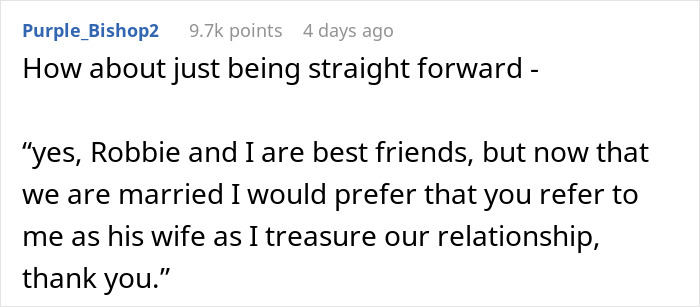

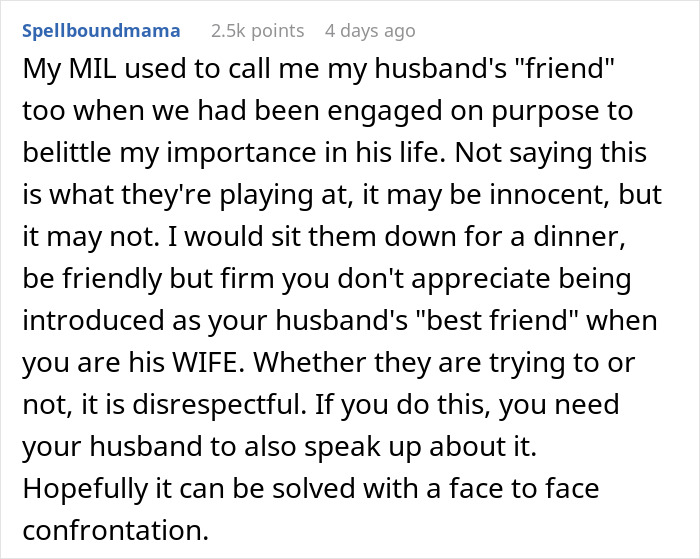
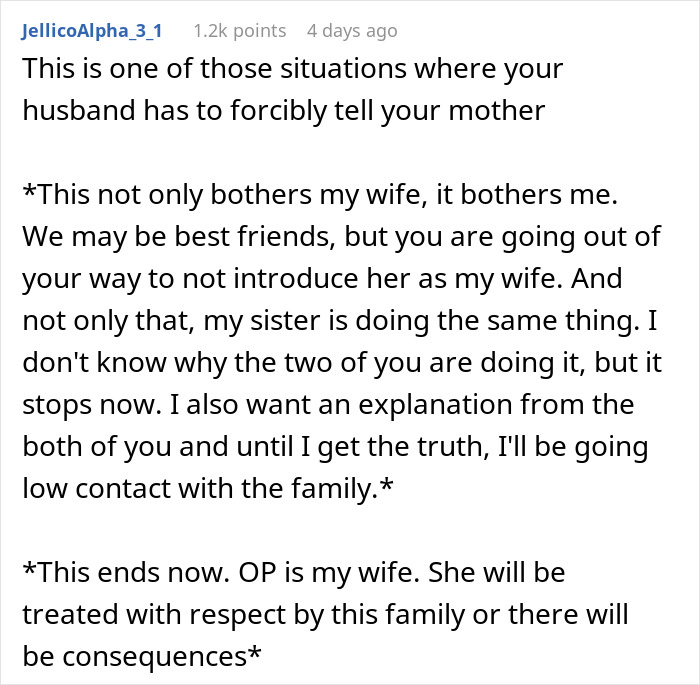
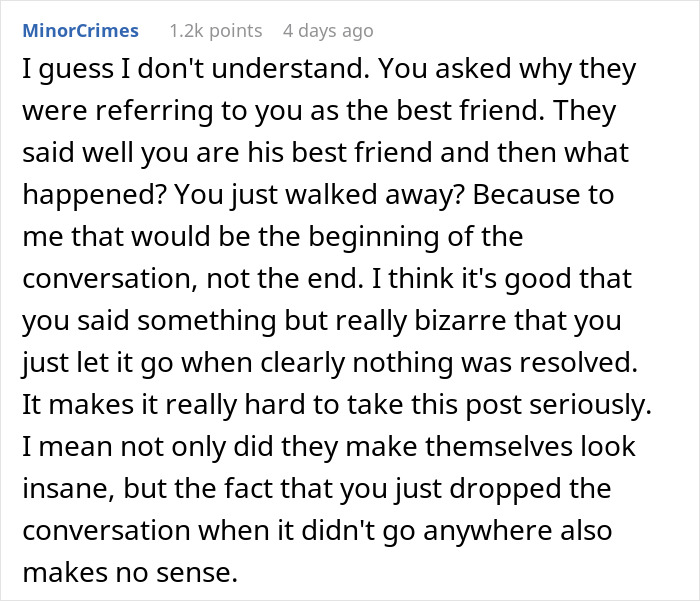


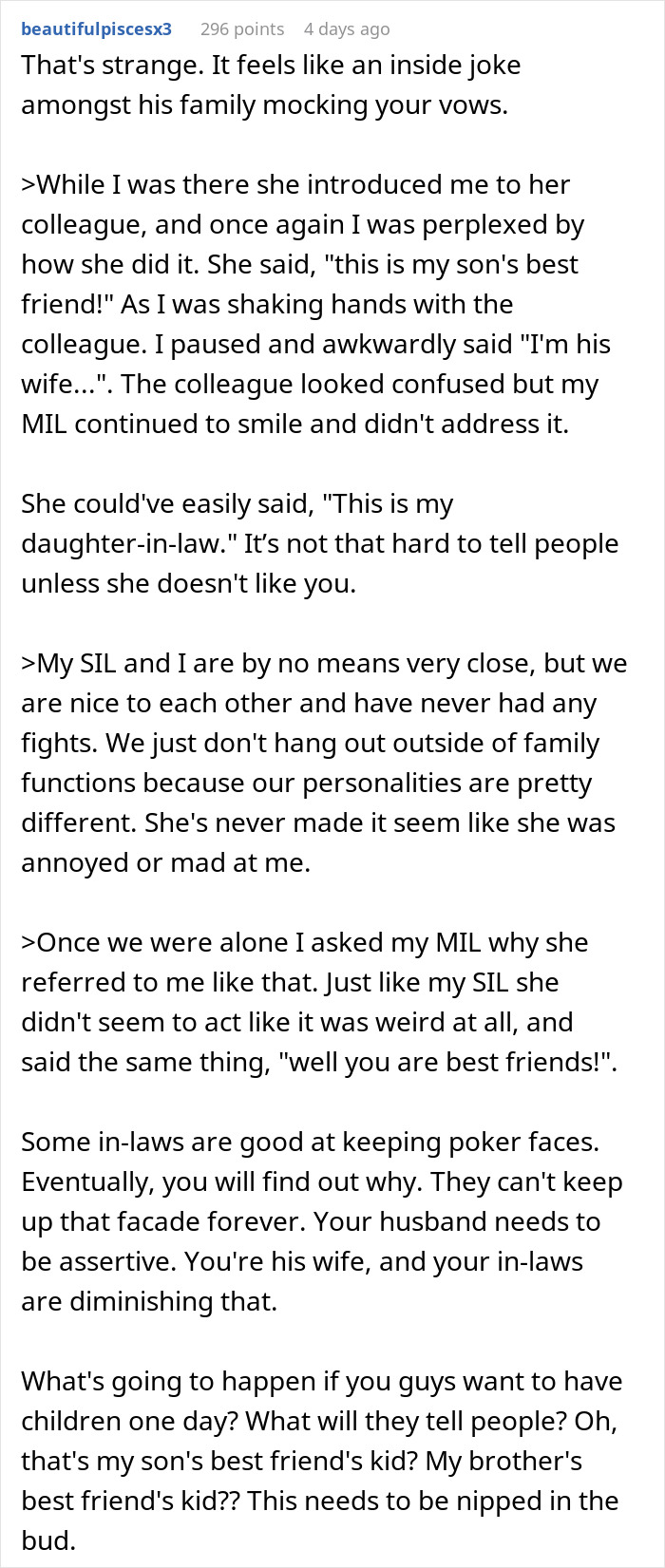


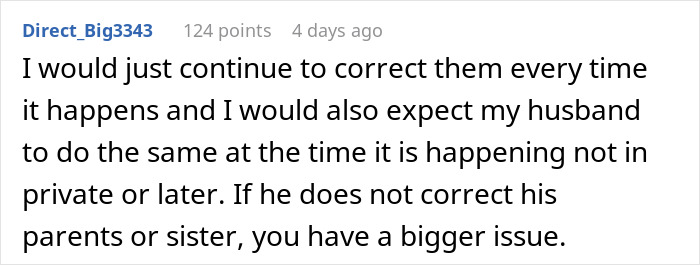



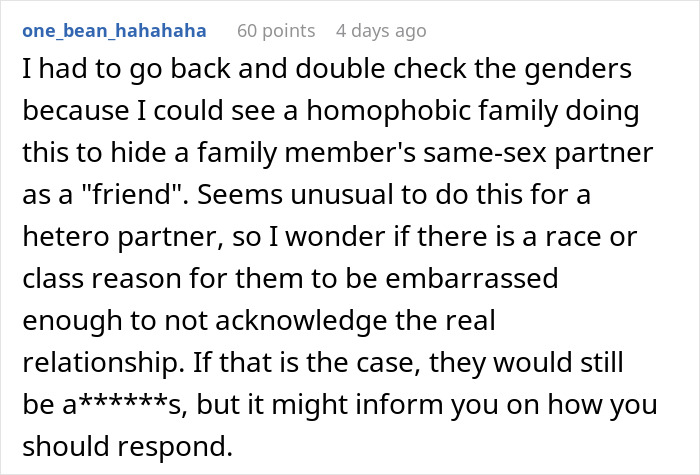
The husband eventually was able to coax out the reason from his father, and it shocked and hurt him to the core
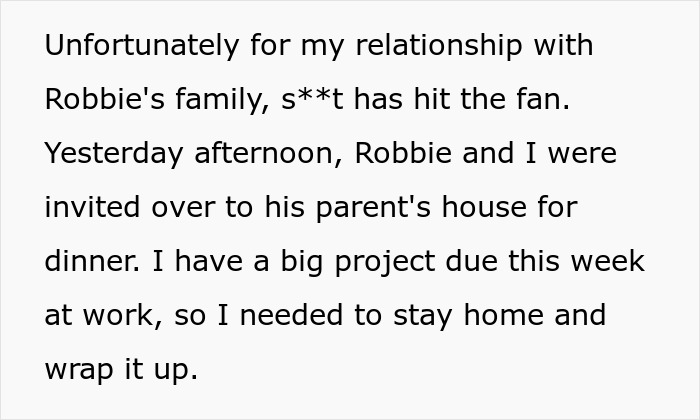
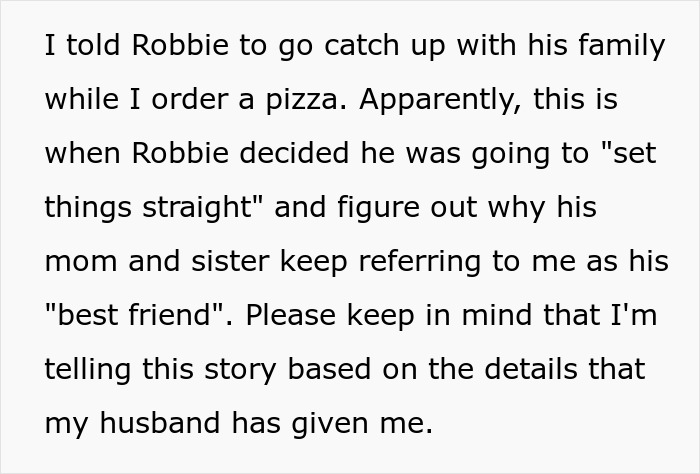
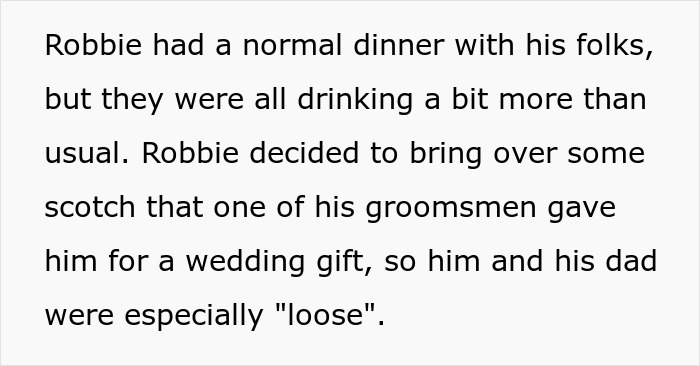

Image credits: cottonbro studio (not the actual photo)
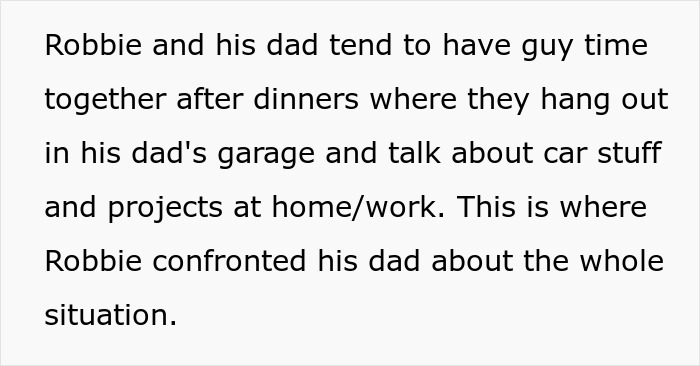

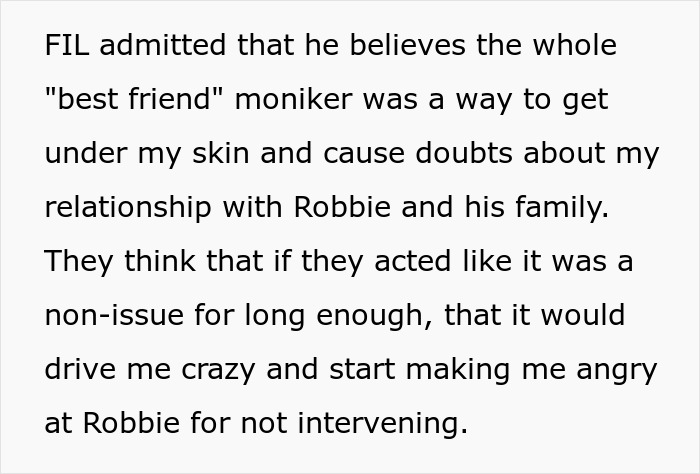

Image credits: cottonbro studio (not the actual photo)

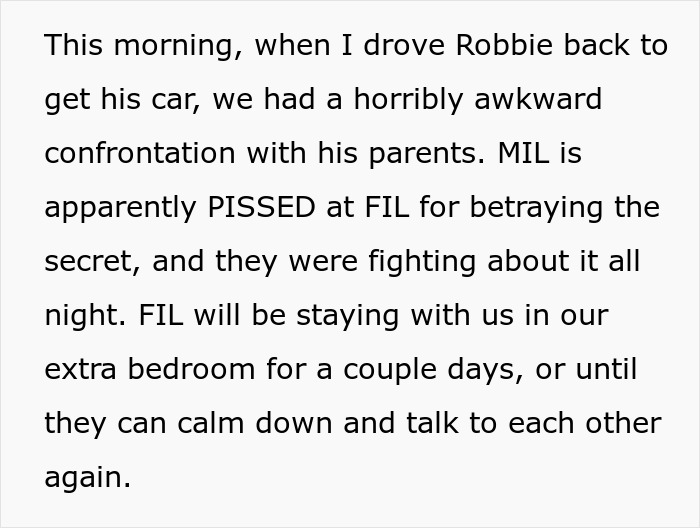
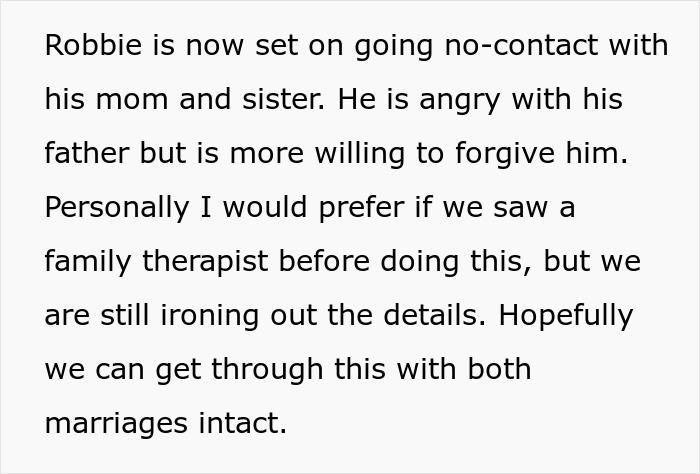
Image credits: faxxed
No son or daughter-in-law should suck it up when facing such disrespect from in-laws
Toxic in-laws take many forms. Some habitually step over the line in the matters of a married couple. Other are passive-aggressive towards their daughter or son-in-law. But few can be so cruel as the family in this story and so openly wish unhappiness on their own family member.
The term ‘toxic’ may be thrown around rather lightly these days, but in-laws who are rooting for their son’s divorce and deliberately trying to drive a wedge between a couple definitely qualify. Relationship experts say that in-laws who intentionally try to hurt the spouse or the couple do cross the line.
The first step would be to let the in-laws know how you feel through a simple conversation. The couple can set boundaries and let the in-laws know that they will not tolerate this kind of disrespect. The most important to thing, according to Heidi McBain, LMFT, LPC, PMH-C, is to remember that what in-laws think of you is not a reflection of what you really are.
“Don’t worry about what your in-laws think of you,” Lowery told Bustle. “Know your worth; you don’t need them to validate you. If you start to struggle with this, find a good therapist to help you see that you can’t overthink what people think of you, including your in-laws. Just be your fantastic self and focus on the people that think you’re awesome!”
Many relationship experts also agree that creating distance can benefit the married couple. Just like the wife in the story suggested, repairing the relationship with the help of a therapist might be possible. But, if the couple feels that there’s no other way, limiting contact is also an option.
Choosing your spouse over your parents is actually quite natural
Many commenters warned the wife not to intervene if the husband wishes to go no-contact with his family. If the parents will show no remorse for what they’ve done, he probably will be left with the choice between his marriage or his family. And, at least for now, it’s obvious what he would be choosing.
However, making such a decision is definitely not easy. Many adult children may be plagued by feelings of guilt when they decide to limit contact with their parents. But, some family relationship experts say, marriage should come first.
“As difficult as it may be to accept, we do not owe our parents anything. For better or worse, they did their job. Period,” psychologist Laura Dabney writes. When it comes to a spouse, it’s the opposite: we did make them a promise.
“We promised intimacy and faithfulness, and longevity by saying, ‘This is it. I’m yours,'” Dr. Dabney explains. “We made a choice. Therefore, when we don’t put him or her first, we are effectively saying, ‘I don’t love you as much as I love my family.”
Ultimately, we don’t and can’t choose family; but we do choose the person we marry. The point of marriage is to step away from being dependent on parents and building your own family. And while estrangement from family can be extremely painful and difficult, it might be the only choice when your family is as cruel as the one in this story.
Commenters couldn’t believe how family members could do such a thing to their son and brother
